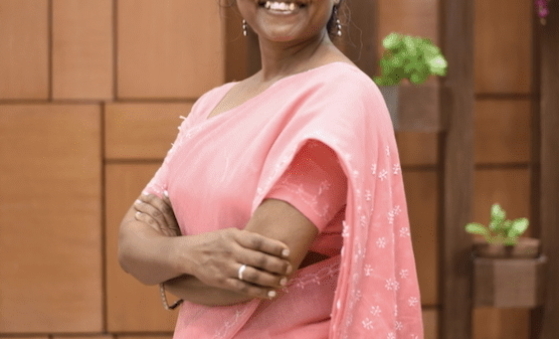
The Madras High Court has ruled that “conferment of scheduled caste communal status on a woman who is a Christian by faith is a fraud on the Constitution” in a case that highlights the ongoing challenges faced by Dalit Christians in India. The judgement, pronounced by Justice L Victoria Gowri on 17 May, disqualified V Amutha Rani from her position as chairperson of the Theroor town panchayat in Kanyakumari district.
Rani, an AIADMK (All India Anna Dravida Munnetra Kazhagam ) party member elected to the post reserved for Scheduled Castes in 2022, had converted to Christianity at the time of her marriage in 2005. The case was brought by V Iyyappan, a DMK candidate who had contested and was elected as the member of the same town panchayat.
In her verdict, Justice L Victoria Gowri observed that Rani “cannot identify herself as a ‘Hindu’“ after her conversion and marriage under the Indian Christian Marriage Act. “Having voluntarily embraced Christianity, Rani cannot claim to be a scheduled caste for the purpose of public employment,” the judge stated.
Justice Gowri was appointed to the Madras High Court in February 2023. Prior to her judicial appointment, she served as assistant solicitor general and, according to media reports, had previously held positions within the Bharatiya Janata Party. Her elevation to the bench was contested through a petition before the Supreme Court, where concerns were raised regarding certain past public statements attributed to her concerning religious minorities. The Supreme Court, however, dismissed the petition and allowed the appointment to proceed.
The court further criticised election officials, stating they had been “reduced to sheer pawns in the hands of the ruling party’s might during local body elections, thereby reducing the vision of the noble panchayat raj a mockery.” Justice Gowri concluded that to retain one’s original religious identity in inter-religious marriages, the only option is to pursue a civil marriage under the Special Marriage Act, 1954.
This ruling follows the Andhra Pradesh High Court decision on April 30, which quashed a criminal case filed under the SC/ST (Prevention of Atrocities) Act. In that case, Justice N Harinath dismissed a petition by Chintada Anand, a pastor who had filed a complaint alleging caste-based abuse, ruling that “if a Scheduled Caste person converts to another religion, their caste status ceases to apply.”
The root of this legal stance lies in Paragraph 3 of the Constitution (Scheduled Castes) Order 1950, which originally restricted SC status to Hindus. The provision was later amended to include Sikhs in 1956 and Buddhists in 1990, while continuing to exclude Christians and Muslims.
The National Commission for Religious and Linguistic Minorities (NCRLM), also known as the Ranganath Misra Commission, described this provision in 2007 as “unconstitutional” and “a black letter written outside the Constitution introduced through the back door by an executive order.”
Dr. John Dayal, journalist and human rights activist, has condemned the constitutional provision as “one of the most humiliating and discriminatory laws on the statute books.” According to Dayal, the law “forces followers of Christ to hide their faith if they want to retain their job or employment in a reserved category” and is “the most vicious of anti-conversion laws.”
Sociological studies commissioned by the National Commission for Minorities have found that even after conversion to Christianity or Islam, individuals’ social position and socio-economic conditions remain largely unchanged. Society continues to treat Dalit Christians and Muslims in the same discriminatory manner as it treats other Dalits.
In February 2025, the Supreme Court agreed to examine a petition by Dalit Christians from Trichy district in Tamil Nadu, who alleged caste-based discrimination within the Roman Catholic Church. The petitioners claimed they were excluded from church administration, denied participation in annual festivals, and subjected to segregated burial grounds. Advocate Franklin Caesar Thomas, representing the petitioners, argued that this discrimination is “not a private dispute but a constitutional issue” warranting judicial intervention.
The Catholic Bishops’ Conference of India acknowledged this reality in its 1998 statement at Varanasi: “The prevalence of the caste system, not only in society but also in some parts of the Church in India even at the close of the twentieth century, is a matter of shame and disgrace to all of us.”
While the Modi government established the Justice K.G. Balakrishnan Commission in October 2022 to study this issue, with its tenure recently extended until October 2025, critics view this as another delaying tactic, noting that numerous commissions have already examined the matter in depth.




